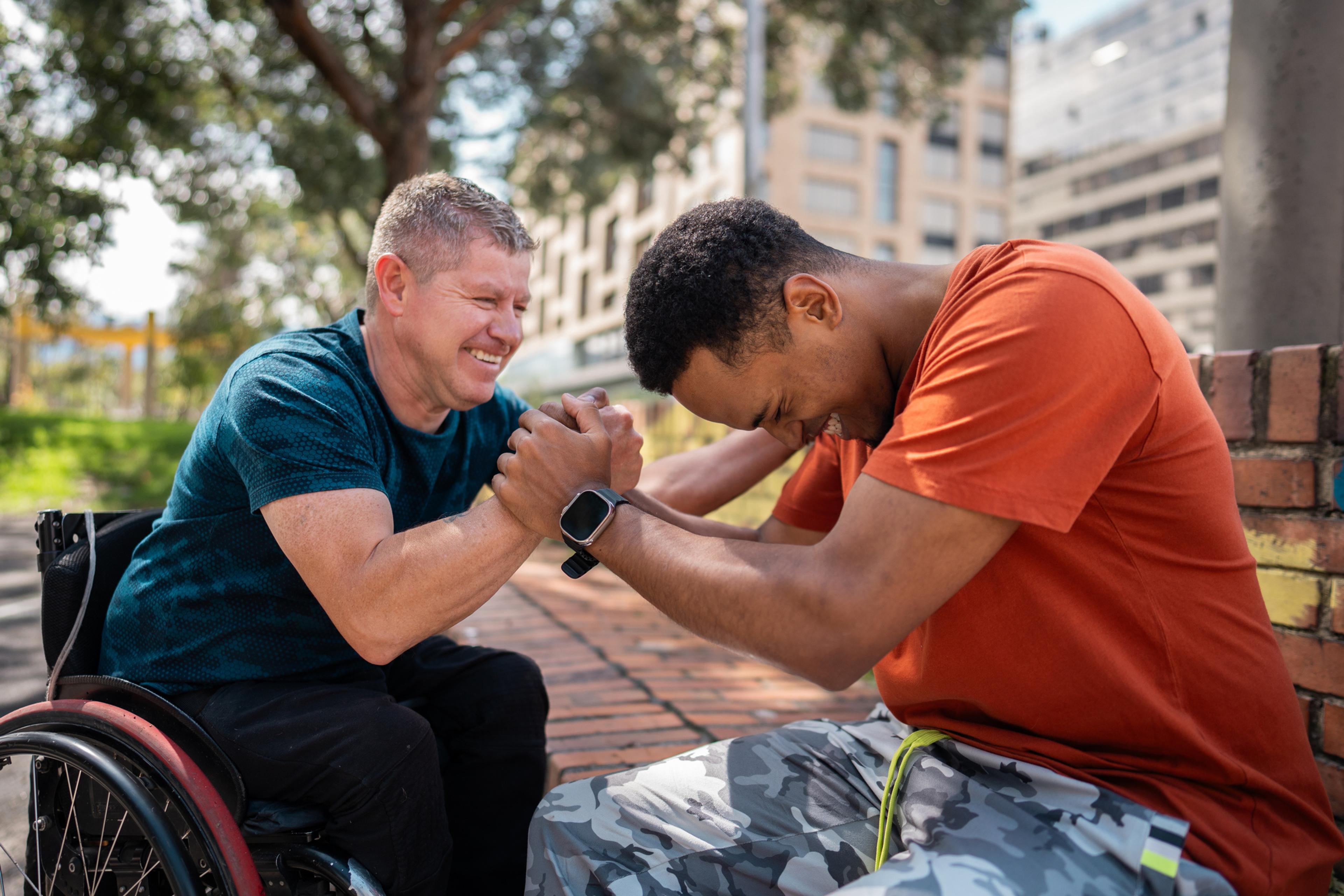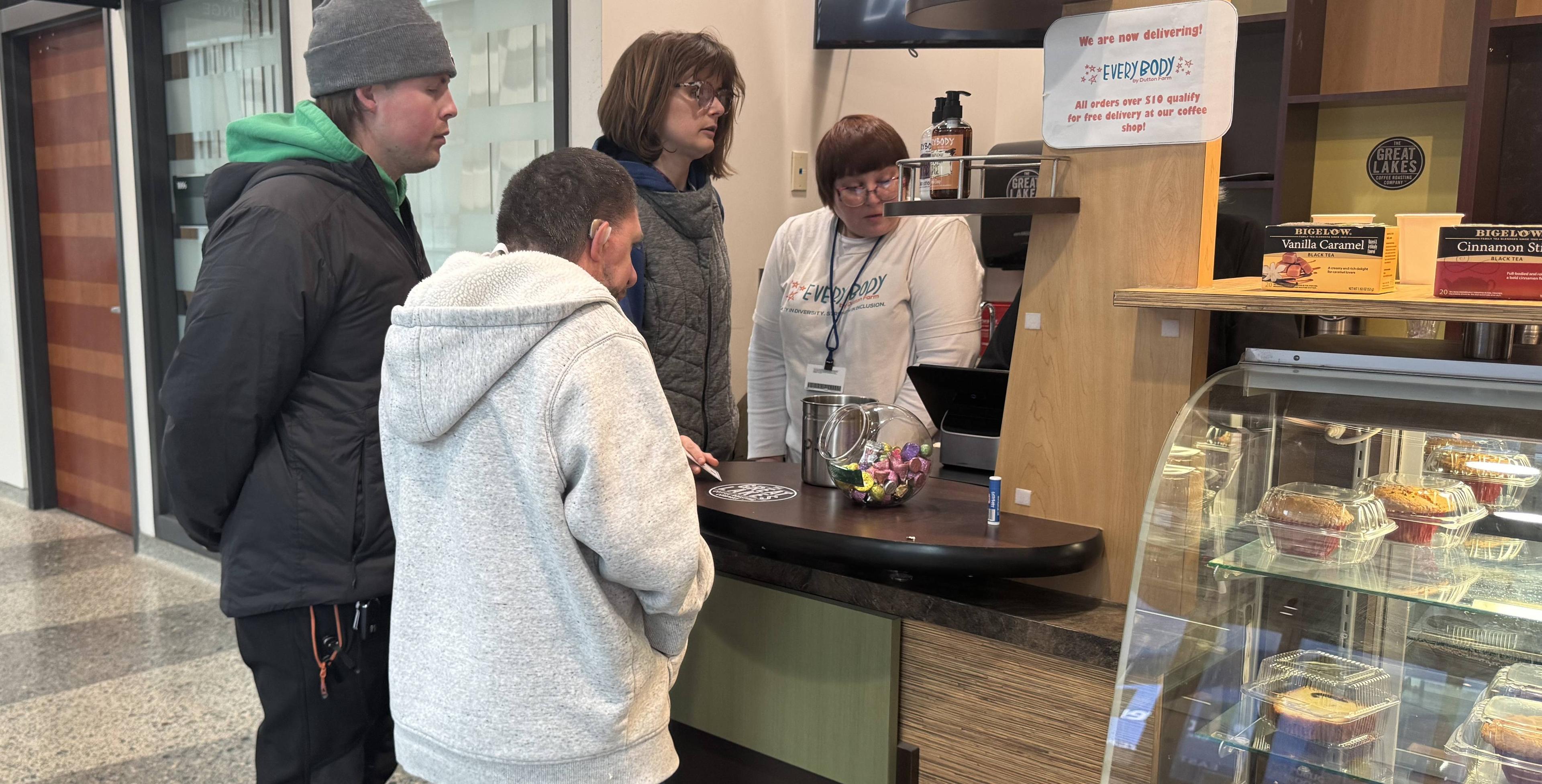Expanding Access to Healthy Food
Amy Barczy
| 4 min read
Amy Barczy is a former brand journalist who authored...

Consider the following: you have no food in the house, and you have $20 to buy several days’ worth of groceries. Where would you go? For some families in Michigan, the answer isn’t as simple as “the grocery store.” Especially when you don’t have a car. Access to healthy food is a significant issue in some neighborhoods and can have lifelong effect on your health. The average distance from a U.S. household to a supermarket is 2.19 miles. Nationally, about 5.7% of households recently surveyed said they didn’t always have the food they wanted or needed to eat because of access limitations. The ability to find and buy healthy food is so crucial that it’s considered a social determinant of health, one of many factors that affect lifelong health outcomes. Other social determinants of health include housing instability, education and poverty.
Food Scarcity
The state of Michigan identified 19 areas of food scarcity in Detroit — areas in which there’s a lack of suppliers of fresh food, including meats, fruits and vegetables. But access to fresh foods isn’t a problem that’s unique to urban areas. In some parts of rural Michigan, there are low-income families without a car living more than 20 miles away from the nearest supermarket. In both rural and urban Michigan, supermarkets with fresh foods in some communities are only accessible by car — and affording a vehicle and its associated insurance costs is difficult for low-income families. This means that when a supermarket is out of reach, people turn to what’s available: convenience stores at gas stations, liquor stores and fast-food restaurants. These options often fill in the gaps in many neighborhoods and communities where healthier food options aren’t easily accessible. In Detroit, a recent report from the Detroit Food Policy Council stated that 30,000 people don’t have access to a full-line grocer. For the families enrolled in Women, Infants and Children, or WIC, their options may be slim: 48% of the stores that accept WIC in Detroit are liquor stores. The limited grocery options at liquor stores generally include more processed foods than fresh, whole foods. And it’s possible for the prices on fresh items to be inflated at liquor stores or gas stations — making them less affordable.
Partnering to Make an Impact
Low-income and minority communities often lack access to affordable, healthier foods – which makes eating a healthy diet difficult. Instead, people in these communities may have to settle for foods that are higher in calories but lower in nutritional value. Poor diets can lead to chronic illnesses including heart disease, type 2 diabetes and obesity – and chronic diseases account for 70% of deaths in the U.S. Helping Michigan residents increase their access to fresh, healthy foods is a priority for Blue Cross Blue Shield of Michigan. Pam Yager, Director of Social Mission at Blue Cross, serves on Michigan Gov. Gretchen Whitmer’s Food Security Council. This new taskforce was created in 2020 to identify solutions for food insecurity in Michigan to help ensure that every family and person has access to quality, nutritious food they need. Blue Cross has engaged multiple community partners across the state to help break down barriers. Through a partnership with the United Fresh Start Foundation, Blue Cross has helped schools across the state secure salad bars so students have access to fresh fruit and vegetables at lunch. Blue Cross also donates money to food banks, including Gleaners Community Food Bank, which works to distribute fresh food and resources to households across metro Detroit, and helps to fund a mobile farmers market to increase access to healthy food in Flint. And grants from the Blue Cross Blue Shield of Michigan Foundation help organizations like Our Kitchen Table in Grand Rapids empower families to grow their own food. Editor’s Note: This is one story that’s part of a year-long blog series. Blue Cross Blue Shield of Michigan journalists will be diving into some of the environmental and socioeconomic reasons behind disparate health outcomes for certain groups of people. While there’s no one answer or simple solution to resolving these complex issues, we’ll talk to community organizations working to address social determinants of health in neighborhoods and communities across Michigan, as well as highlight work that Blue Cross is doing to contribute to solutions for the health of all Michiganders. More from MIBluesPerspectives:
Photo credit: Getty Images





